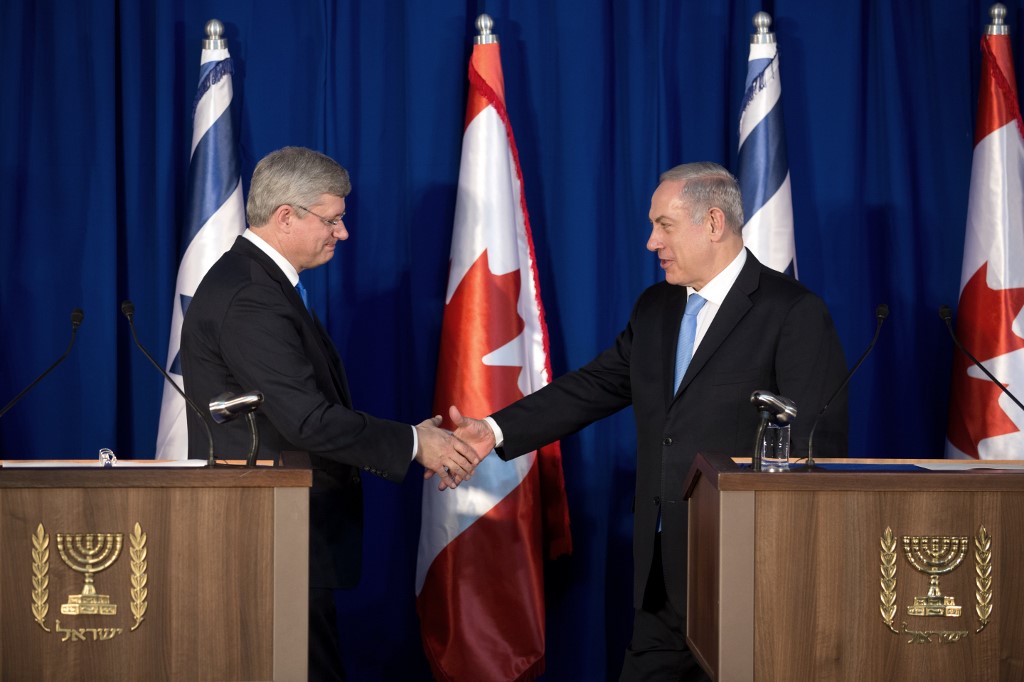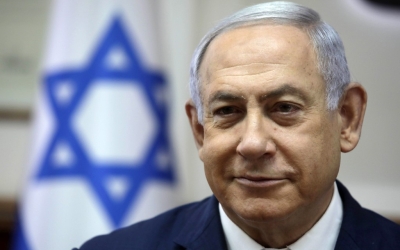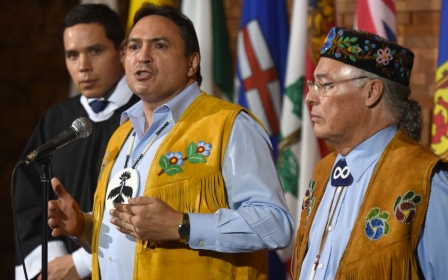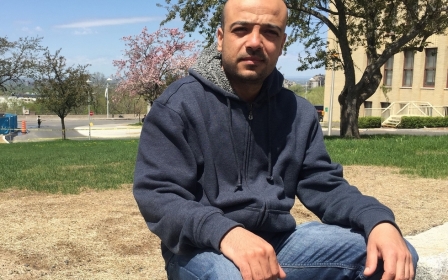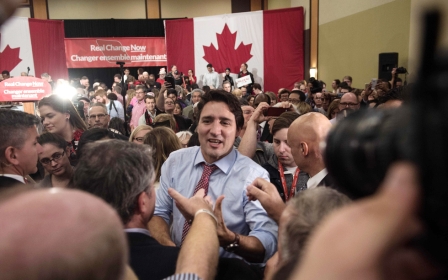Is Canada shifting away from its pro-Israel stance on Palestine?
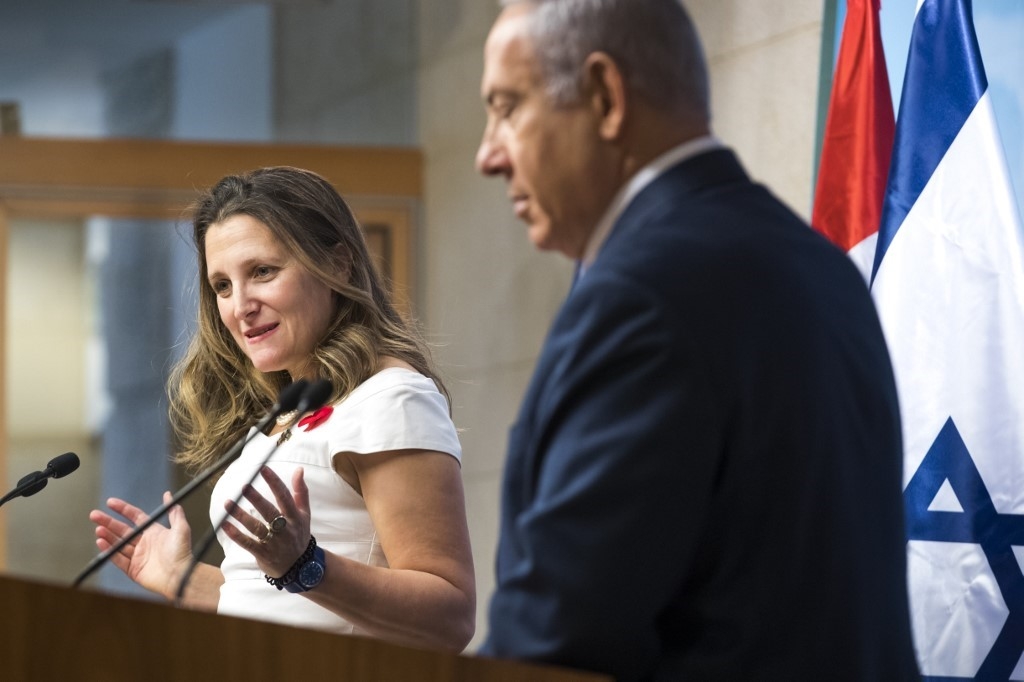
2018 (AFP)
Canada is a close ally of Israel, something the Trudeau Liberal government has repeatedly and ardently reinforced. But the country recently reversed a years-long trend by voting in favour of a United Nations General Assembly resolution on the Palestinian right to self-determination.
The resolution was first introduced in 1994 and has since been reintroduced on an annual basis. Canada initially voted in favour of the resolution, but abstained for the first time in 2000, expressing concern that a reference to the Palestinian “right to a state” could prejudice a negotiated outcome to the conflict.
It had been a pillar of Canadian policy for decades that a solution should be found through talks between the parties, rather than a unilateral resolution.
Settlements are widely regarded as a major obstacle to a two-state solution, and Canada has long agreed with this in its official policy
In 2011, after winning a majority government, the Harper Conservatives voted against the resolution on Palestinian self-determination. John Baird, the former foreign minister, said Canada would not support unilateral efforts by the Palestinian Authority to secure international recognition for a Palestinian state.
That year, Canada voted against all but two of 16 UN resolutions on the Israeli-Palestinian conflict, siding with Israel at the expense of the Palestinians. This was a voting pattern that the Trudeau government maintained - until now.
New MEE newsletter: Jerusalem Dispatch
Sign up to get the latest insights and analysis on Israel-Palestine, alongside Turkey Unpacked and other MEE newsletters
The recent shift restores a degree of consistency between Canadian policy and the country’s voting record prior to the Harper era, including its recognition of the Palestinian right to self-determination and “the creation of a sovereign, independent, viable, democratic and territorially contiguous Palestinian state, as part of a comprehensive, just and lasting peace settlement”.
Canadian officials explained that the latest vote aimed to shore up prospects for a two-state solution. By contrast, barely a month earlier, the US announced that it would “no longer recognise Israeli settlements as per se inconsistent with international law”.
Settlements are widely regarded as a major obstacle to a two-state solution, and Canada has long agreed with this in its official policy, stating that it does not recognise permanent Israeli control over territories occupied in 1967, including the Golan Heights, the West Bank, East Jerusalem and Gaza.
“Israeli settlements in the occupied territories are a violation of the Fourth Geneva Convention,” the government states. “The settlements also constitute a serious obstacle to achieving a comprehensive, just and lasting peace.”
From Harper to Trudeau
In 2019, Canada voted against all but three out of 16 recurrent resolutions at the UN on the question of Palestine. The Trudeau government has consistently suggested that the resolutions are “biased” or seek to “single out Israel”.
The Trudeau government’s position is consistent with the Harper government’s view that Canada should take a stand with Israel, “the only country in the world whose very existence is under attack, is consistently and conspicuously singled out for condemnation”.
Even so, Canada’s refusal, alongside six other countries, to condemn Israeli settlement-building at the UN seems strange in light of its support for Palestinian self-determination and long-standing official policy.
Canada also continued this year to vote against a resolution on Palestinian inalienable rights, including the right of refugees to return to their homes and properties. The Trudeau government’s vote against a resolution on the operations of UNRWA, the UN agency that assists Palestinian refugees, also stands out.
In contrast, one of the Trudeau government’s biggest decisions upon gaining power several years ago was to restore funding to UNRWA, which had been cut by the Harper government.
Canada has mostly supported the agency since its inception in 1949, and was the third-largest donor to UNRWA in its first 20 years of operations, contributing tens of millions of dollars. Canada also oversaw the Refugee Working Group during the Oslo process in the 1990s.
'Absolutely unacceptable'
It is useful to put Canada’s international voting record into context with the hotly contested domestic politics of Israel and Palestine in Canada. A common site of contestation is the realm of higher education.
In November, a campus event at York University for an Israeli advocacy group was met with protests by Palestine solidarity activists. The event featured members of Reservists on Duty, a group founded by former members of the Israeli army with a goal to counter the boycott, divestment and sanctions (BDS) movement.
Also at the event were members of the Jewish Defense League (JDL), a group that has been classified as a terrorist organisation in the United States. Indeed, reports of violence followed.
The immediate response by Canadian politicians at all levels was, without investigation, to condemn the Palestine solidarity advocates. True to past form, Prime Minister Justin Trudeau was quick to denounce them, tweeting: “What happened that night was shocking and absolutely unacceptable. Antisemitism has no place in Canada.”
Yet, recognising that the real threat came from the JDL, two York students’ associations issued a statement noting: “We the students demand that the university take immediate action to ensure that known members of the JDL, and other organizations that are complicit in violent and harmful behaviour, are no longer allowed on our campus.”
Amnesty International joined many other civil society organisations in expressing concern about the violence students faced on campus.
Deeply one-sided
Meanwhile, the Trudeau government has been attempting to facilitate the sale of products from Israeli settlements in Canada through the renewed Canada-Israel Free Trade Agreement. Unusually, the agreement lacks a human rights provision, and despite Canada’s official policy on settlements, the deal makes no distinction between products made in settlements and other Israeli products.
According to Amnesty International, “failure to make this distinction is destructive to the human rights situation for the Palestinian people” living in the occupied territories. Though a federal court ruled that these products could not be labelled as “product of Israel” in Canada, that ruling is currently being appealed by the Canadian government.
The real test of Canada's support for the Palestinian right to self-determination will lie in whether, and how, the Trudeau government translates the positive vote into action
For advocates of the Oslo two-state process or Palestinian rights, the recent vote in favour of Palestinian self-determination was unexpected, but welcomed as a positive development. Supporters of Israel in Canada, meanwhile, felt betrayed.
Overall, the vote for self-determination was significant because Canadian policy has been deeply one-sided for years, and the vote suggests a potential shift to a fairer approach of the sort that the Government of Canada consciously tried to adopt in the 1990s. Still, the gap between official policy and the country’s UN voting record remains significant.
The self-determination vote may mean nothing without transformative structural change, especially when we see concurrent moves in the opposite direction on refugees and settlements.
The real test of Canada’s support for the Palestinian right to self-determination will lie in whether, and how, the Trudeau government translates the positive vote into action.
The views expressed in this article belong to the author and do not necessarily reflect the editorial policy of Middle East Eye.
Middle East Eye delivers independent and unrivalled coverage and analysis of the Middle East, North Africa and beyond. To learn more about republishing this content and the associated fees, please fill out this form. More about MEE can be found here.


